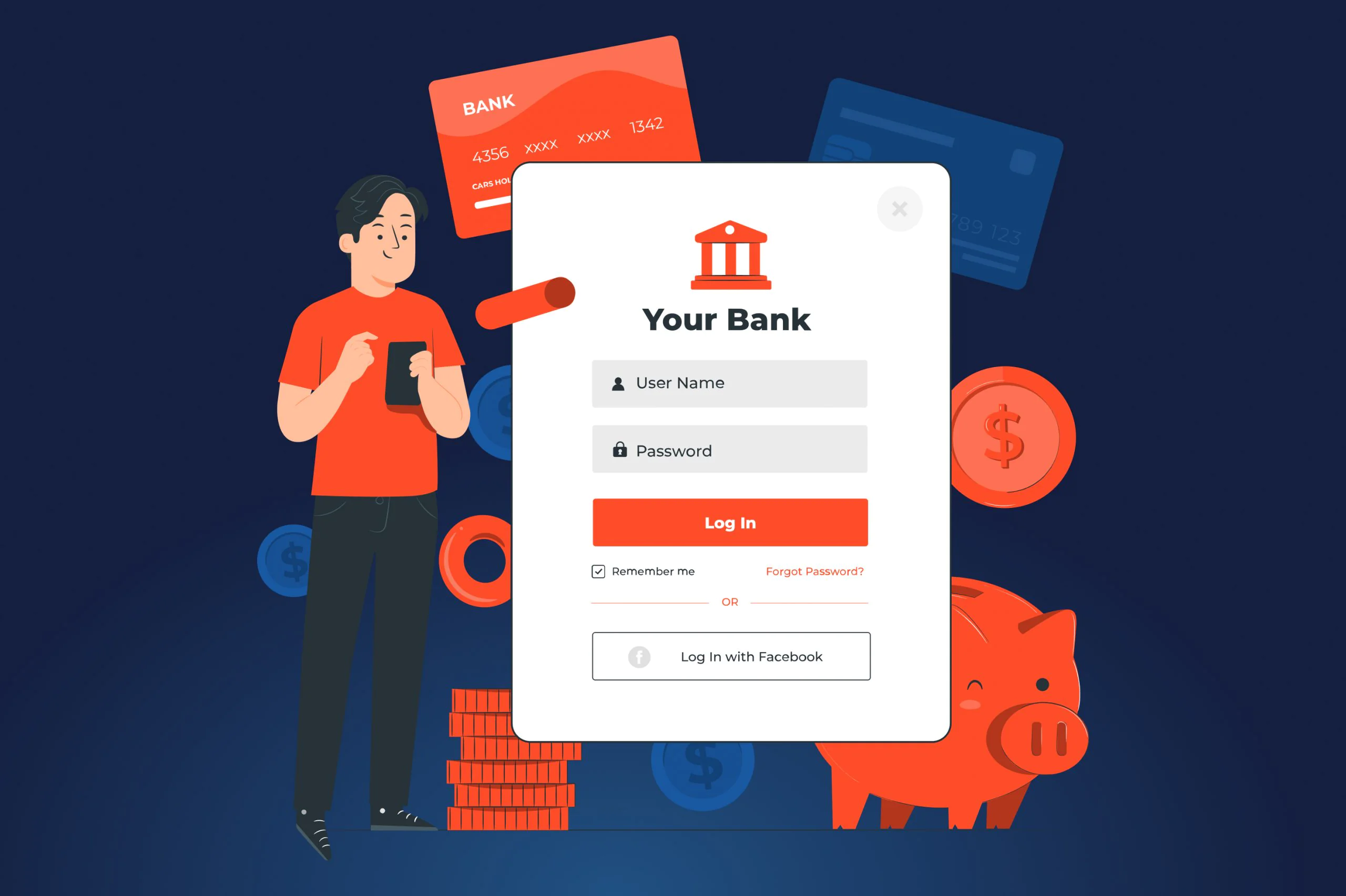If you’re still doubting whether digital transformation is what your financial services company needs, let us show you some stats. Businesses with digital-first strategies are 64% more likely to attain their key goals than their competitors. Moreover, adopting digital solutions helps companies release their product to market 36% faster, as well as increase operational efficiency by 40% and client satisfaction by 35%.
Now you might be thinking: “Oh well, that’s all good, but huge changes can be kind of risky and entail many hidden pitfalls.” Yes, you’re right here. Balancing between caution and innovation is not a task that can be easily handled. But it doesn’t mean that you have to ignore digitalization, especially in today’s highly competitive world. And in this article the JatApp team will explain why digital transformation is important and what you can do to succeed in the digital age.
What is digital transformation in financial services?
Digital transformation in financial services means adoption of technology or replacing a legacy system with newer solutions to improve customer experience and efficiency. The massive digitalization of the sector can be traced back to the coronavirus outbreak, when many legacy systems and cumbersome operations sank into oblivion. New cyber-security threats and remote working have made it imperative for financial services companies to embrace digital solutions. Artificial intelligence (AI), blockchain, machine learning (ML), and cloud computing are only a few of the technologies that businesses have adopted to fit the mold of the digital era.
Why should even small financial companies go digital?
If your company hasn’t changed for many years, it can be scary to suddenly shift to a whole new way of doing business. Here’s a motivation hack for you: jot down all benefits of financial services transformation to refer to in the moments of fear and doubts. Below, you can find some ideas for writing such an inspirational list.
Enhanced customer experience
Provide clients with superior experience, and they’ll purchase your financial services, be more loyal, and tell their friends about you. Therefore, successful companies are constantly raising the bar in terms of customer service to stay on top.
But what does great customer experience actually mean? The answer is quite simple: convenience, speed, and consistency. Customers expect to have instant access to services they need anytime, anywhere and from any device. Digital solutions allow companies to satisfy these demands, retain customers more easily, and attract new ones.
Optimized operations and reduced expenses
The chairman of Cisco System, John Chambers, believes that approximately 40% of businesses will get to the R.I.P. list, unless they figure out how to implement new digital technologies. Companies that resist going digital will end up lagging behind their competitors, who managed to automate their processes and increase operational efficiency.
Those players that timely digitized their business will be able to cut down their costs by up to 30%. The rule of thumb is that if you save time by streamlining your operations, you’ll save money, too. By contrast, companies that rely on legacy technologies spend insane amounts of money to maintain them. Replacing them with innovative tools is the only way to avoid unnecessary expenses.
The culture of innovation
Digitalization doesn’t happen overnight. This means that you’ll have to encourage the culture of innovation, agility, and open-mindedness among your teammates. By the end of this transformational journey, your employees will hopefully be more eager to adopt innovative practices and no longer get shivers after hearing the word “technology”. Moreover, they are more likely to approach other processes within their organization with more creativity and audacity.
Increased revenues
The study conducted by Google and Boston Consulting Group has found that banks increase their revenues by up 20% thanks to digital solutions. With innovative technologies, finance companies are better able to connect with their customers, leverage new sales opportunities, and streamline operations. What’s more, businesses can create additional value for their clients, which also translates into new revenue streams.
Improved business analysis
Data analytics tools allow finance companies to improve their decision-making and therefore become one step ahead of their competitors. With such solutions at their fingertips, they’re better able to understand customers’ preferences, predict trends in the field, and even evaluate risks of taking a certain decision. More importantly, digital tools are associated with improved business outcomes and higher levels of certainty in this disruptive entrepreneurial world.
Digital transformation trends to future-proof your business
Now when you know your “whys” and are ready to embrace digitalization, it’s time to think how exactly you can use technology to improve your organizational processes. That’s why we’ve compiled a list of digital transformation trends in financial services for you to understand what business strategy to pursue.
Paperless transactions are no longer an option, but a must
Fintech has already affected the way people transfer their money and make payments. Undoubtedly, paperless transactions enable businesses to cut down their expenses and save lots of precious time. The technology rescues companies from storing loads of paper documents and spending hours of manual work. Besides, payment gateways can minimize the risk of breaches and enhance security, since you no longer store or physically transport sensitive data.
Last but certainly not least, digital transactions improve client support and service by replacing slow and tedious processes. Companies that rely on payment gateways automatically process transactions, delivering seamless customer experience.
One of our American clients reached out to us to build a payment gateway to secure debit and credit card transactions. Our team built a fully Payment Card Industry (PCI) compliant solution that allows our customer to minimize processing costs and optimize acceptance rates.
Thanks to fraud detection technologies, this solution collects and analyzes data on users’ behavior to identify fraudulent actions and take necessary steps to address them. Another useful feature is cascading payments. Here’s how it works: if a digital bank doesn’t accept the digital payment, the system automatically connects to another bank. This helps to quickly process a payment without significant hiccups.
Payment gateway functionality
Blockchain has become the key to unshakable security
Blockchain technology has numerous advantages compared to traditional financial systems. First, digital payments can be processed with blockchain, without involving a bank or any other third party. Second, companies use blockchain to deliver an escrow service, which protects both sellers and buyers in digital transactions. Blockchain technology also facilitates the loan approval process, helping lenders check borrowers’ identity and creditworthiness.
The Liquid Mortgage makes a good example of blockchain technology that connects borrowers and lenders. With this fintech, borrowers can monitor and manage their transactions and protect their data by encryption algorithms. Lenders, in their turn, are able to sign smart contracts and have access to real-time payment data.
The Liquid Mortgage functionality
Artificial intelligence (AI) is a game changer in fraud detection and customer experience
AI is widely used in the financial services industry, be it for process automation or pattern recognition. Trained on large datasets, the tool is able to identify specific patterns and automatically take action to address a rising problem. For example, with the help of AI, it’s possible to identify and take measures when a person is trying to make a fake transaction or create a fraudulent bank account. Additionally, AI helps businesses spot market opportunities that lie in front of them, as well as predict customers’ behavior.
But the magic doesn’t end with these advantages. AI-driven solutions help to provide personalized advice and recommendations, which takes customer experience to a whole new level. For instance, today AI-fueled chatbots offer clients immediate answers to their finance-related questions and can even recommend investments based on their unique preferences and goals.
As an on-point example, Betterment is an AI-driven robo-advisor for investors who want to save for something big, like family-building, retirement or college fund. Its AI algorithms recommend portfolios of low-cost exchange traded funds (ETFs) taking into account users’ risk aversion level and personal goals.
Betterment AI algorithms
The popularity of mobile apps has grown like a weed
We live in a world where losing a passport is not as scary as losing a smartphone. Contemporary people heavily depend on their phones –– they use them to buy food, pay the bills, check their salary report, order a taxi, show a boarding pass at the airport, and the list goes on. So, it’s no wonder that many companies have started to prioritize mobile-first strategies when building fintech solutions. Such an approach allows customers to address their problems on-the-go, without the need to schedule an appointment in a brick-and-mortar bank.
Robinhood is one of the most popular fintech mobile apps. This is a commission-free investing tool that helps use shape their financial future right in their smartphones. They can buy cryptocurrencies, ETFs, and stocks in a few simple clicks.
Robinhood mobile app
The Internet of Things (IoT) is the future of banking
IoT refers to the technology that allows connected devices, like cameras and sensors, to gather, process and respond to data in real time. In banking, IoT is often used in an automated teller machine (ATM). IoT sensors collect data on the ATM environment to automatically adjust heating, ventilation, and air conditioning control (HVAC), which make it possible to cut down energy use.
Besides, ATM monitoring in real-time helps to handle different incidents, like cash shortage or card reader problems. Some banks, like Citibank, rely on IoT to authorize their customers and allow them to enter ATM lobbies after working hours. This fintech installed Bluetooth beacons in a range of physical branches, so that clients could use their Apple Watches and iPhones as “the digital keys”.
Citibank ATM
Revolutionize financial services with JatApp
Financial services companies are now in the middle of a profound digital transformation. More cutting-edge services are emerging to deliver excellent customer experience, improve operational efficiency, increase revenues, and cut down costs. If you want to make sure your company will pan out today, you need to be ready to digitize your business, and the sooner the better.
JatApp can assist you in these efforts. Our software company has a team of more than 100 developers, who are pros in building high-quality payment gateways, banking software, insurance solutions, and personal wealth management products. Thanks to their hard work, we’ve been featured in the list of the world’s best outsourcing companies by Clutch. During seven years of doing business, our team has won many clients’ hearts along with a 99% customer satisfaction rating.
Leave us a note, if you feel your financial services company is longing for digital transformation.










